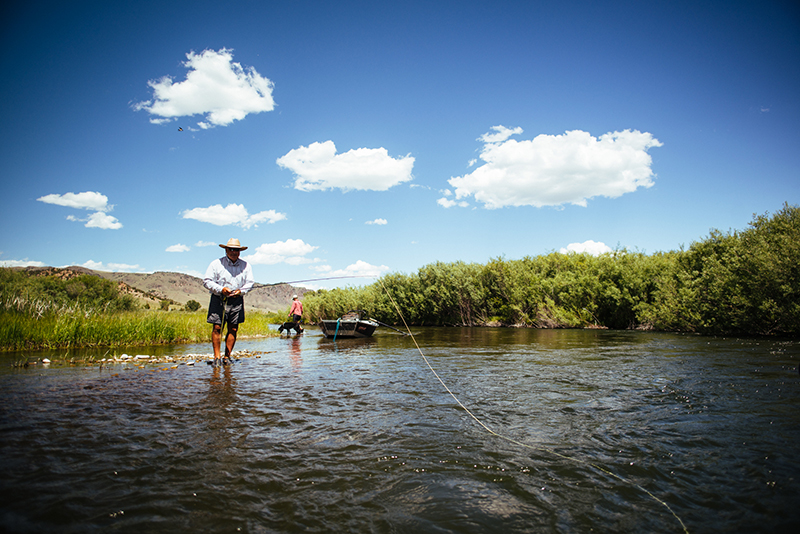Hardrock mining played an essential role in shaping the national character of the United States. It served as a catalyst for western expansion, beginning with the California Gold Rush in 1848. Today, the mining of hardrock minerals like gold, silver, iron and copper feed our economy and are essential to building the world we live in.
Mining of the past, however, has come with a price. Approximately 110,000 miles of streams – enough to circle the Earth four times – are listed as impaired for heavy metals or acidity and abandoned mines are a major source of these impairments. Of these impaired stream miles, 20 percent are within subwatersheds that contain native trout and salmon while 52 percent are in subwatersheds that are important drinking water sources.
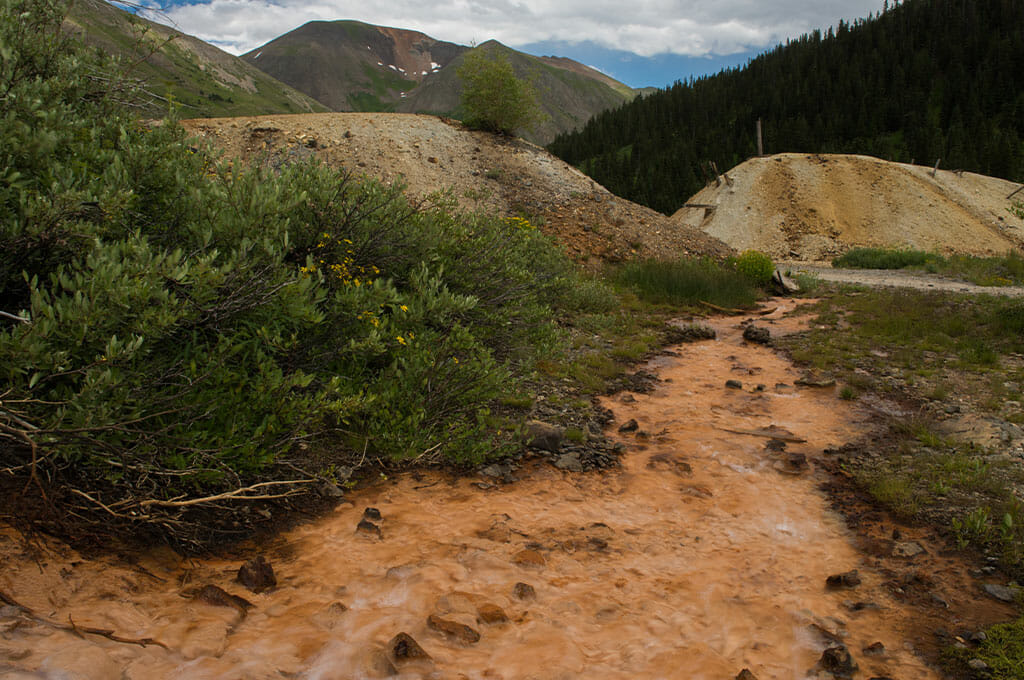
Mining Policy
The General Mining Law of 1872 has long governed hardrock mining on public lands, but it has never required prospectors to pay royalties to the American taxpayer on the deposits they claimed, nor required them to clean up sites before they move on. While reclamation is now required, key elements of the mining law remain unchanged. Domestic mining will help us produce the raw materials we need for our clean energy future. But is a 150-year-old law sufficient to carry us forward into a new era of mining? It’s long past time to modernize this regulatory relic.
Changes to the 1872 Mining Law must be fair. This means that any regulatory changes will need to provide for a sustainable domestic mining industry. It also means that American taxpayers deserve a fair return for the minerals extracted from public lands. Additionally, professional public land managers must have the discretion to set aside public lands that are not suitable for mining and to deny permits for operations that would cause undue harm to the environment and communities. This is how every other use on public lands is managed and it is only fair to treat mining the same way.
Trout Unlimited will engage productively in efforts to ensure that responsible mining is balanced with conservation by avoiding and minimizing impacts to wild and native trout and salmon.
Mine Permitting
At the center of Trout Unlimited’s work on responsible hardrock mining is a commitment avoiding the mistakes of the past. To this end, we approach new mines on a case-by-case basis. We work directly with mining companies, as well as state and federal permitting agencies, to apply policy and practices to mitigate the impacts of new mines on coldwater fisheries. In the case of a wrong mine in the wrong place, Trout Unlimited will strongly advocate in opposition. Location is everything and when the threat of groundwater depletion, acid-mine drainage and potential for spills cannot be responsibly mitigated, Trout Unlimited reserves the right to say no.
Each of these approaches has led to conservation gains, as outlined below. Trout Unlimited’s approach of thoughtfully considering proposed mines on a case-by-case basis has been instrumental in achieving these successes, and has solidified our reputation as a pragmatic, science-driven, non-partisan conservation organization. This allows us to work with a variety of stakeholders and local communities to build support for balanced habitat protections, to credibly oppose development in critical habitats and to work directly with mining companies on abandoned mine reclamation projects throughout the United States.
Critical fish habitats
A fundamental tenet of Trout Unlimited’s work to advance responsible hardrock mining is to avoid important coldwater habitat. Trout Unlimited has been assertive in advocating for protection of areas that are unsuitable for mining such as Bristol Bay, Alaska.
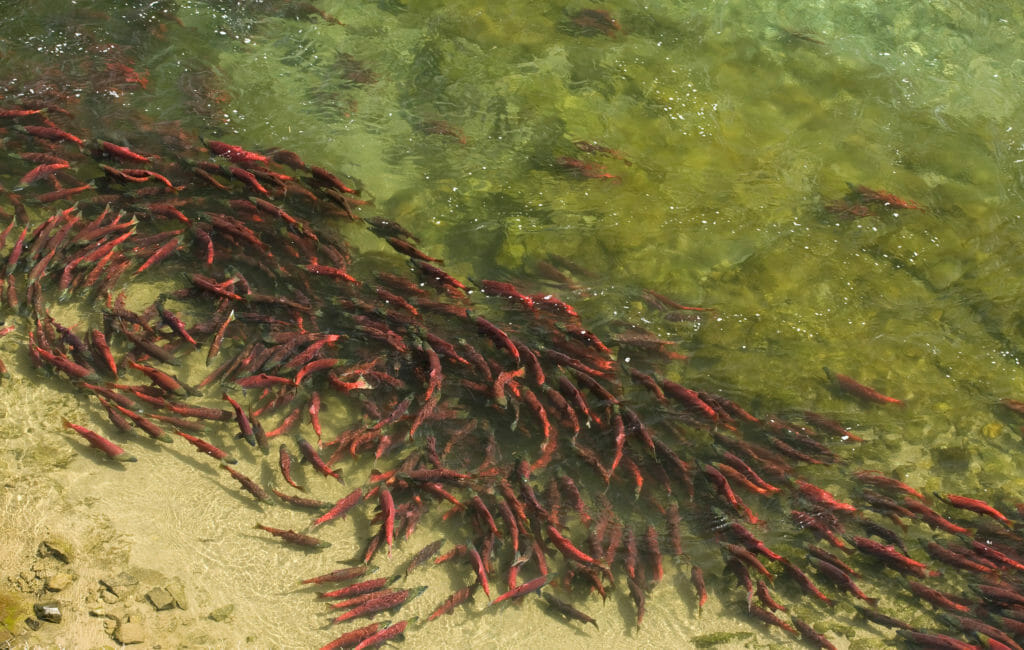
Bristol Bay, Alaska
An estimated 56 million salmon swim hundreds of miles, each year, from the ocean toward the rivers and streams of Bristol Bay watershed in southwest Alaska. Bristol Bay is one of the last, great salmon fisheries on Earth. Trout Unlimited has fought a decade-long battle to protect Bristol Bay from a proposed gold and copper mine. If constructed this mine would be North America’s largest open pit mine at the headwaters of Bristol Bay’s two main rivers. Nearly 11 billion tons of acid generating waste would have to be stored on site, in an incredibly wet area, and in an earthquake zone. Bristol Bay’s wild salmon support 14,000 American jobs, hundreds of fish-based businesses, a world class sport fishing destination and an Alaska Native culture that has revolved around salmon for more than 10,000 years. There is no better example of wrong mine in the wrong place than here.
Rogue and Smith River, Oregon
In 2017, Trout Unlimited was successful in protecting iconic steelhead and salmon rivers like the Rogue and Smith in southwest Oregon, from the threat of nickel mining. In partnership with local communities Trout Unlimited successfully advocated for both the Forest Service and BLM to withdraw more than 100,000 acres from mineral development. This administrative withdrawal is now in place for the next 20 years.
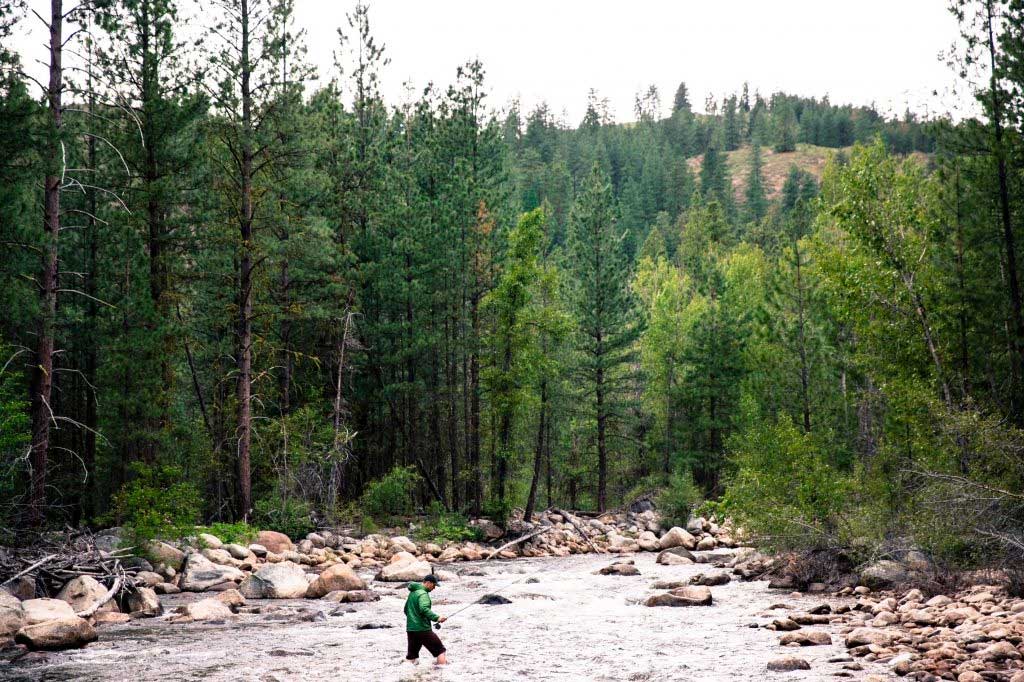
Methow River, Washington
The Methow River headwaters in northwest Washington are threatened by a proposed copper mine. The Methow boasts an iconic fishery and is essential to the recovery of the Columbia River’s salmon runs. Trout Unlimited has also worked for years with ranchers and local communities to restore steelhead and salmon habitat in the Methow River. Trout Unlimited and its partners are actively working to stop the proposed copper mine and all future mines in these headwaters. A bill to protect the Methow passed both the House and the Senate in early 2019 and currently awaits the President’s signature.
Grand Canyon, Arizona
Trout Unlimited has aggressively opposed new uranium mining on public lands adjacent to Arizona’s Grand Canyon for years. Past uranium mining in this area has left a resulted in a legacy of radioactive pollution to the air and water in and around the canyon. In 2012, Trout Unlimited was successful in securing a 20-year ban on new uranium claims. In recent years Trout Unlimited has defended this policy and is now poised to secure a permanent mining withdrawal new policy.
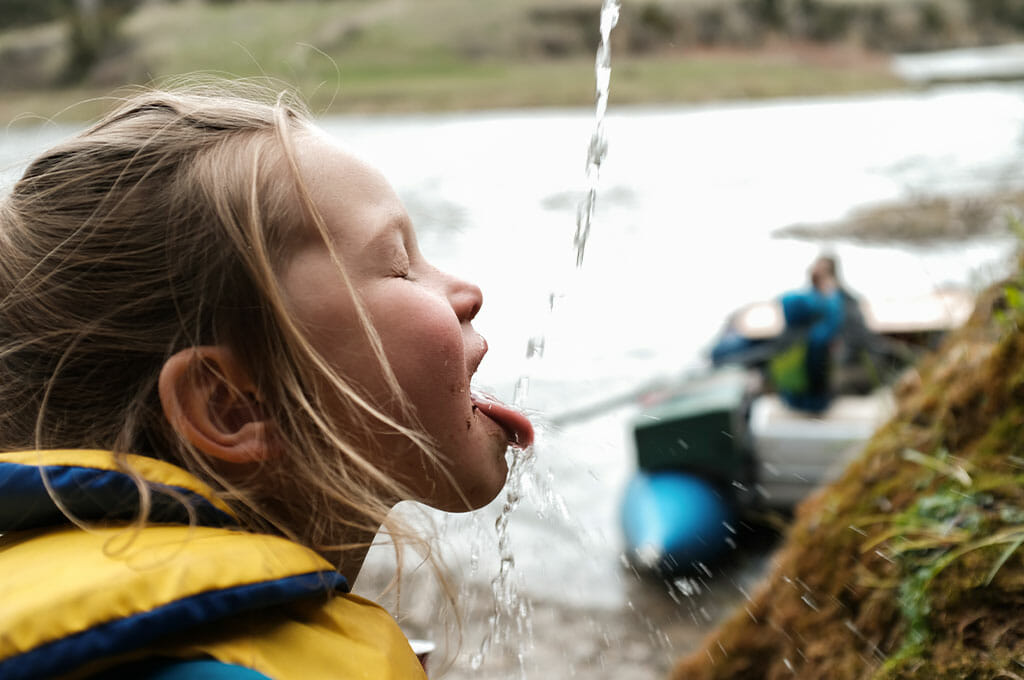
Smith River, Montana
Montana is a state of iconic rivers, yet one river more than any other is treasured by residents and non-residents alike – the Smith. Located in central Montana, the Smith River runs through scenic ranchlands west of the town of White Sulphur Springs into a series of limestone canyons towering far above the river. Bounded by stands of Douglas fir and ponderosa pine, the river is a blue-ribbon trout fishery for brown, rainbow, Westslope cutthroat, and brook trout as it carves its way north. A Canadian mining company, Tintina Resources, has its corporate eyes on an estimated $2 billion worth of copper with their proposed Black Butte Copper Mine located near Sheep Creek, one of the Smith’s most important tributaries and nursery of the majority of the river’s trout. Trout Unlimited has worked for the last five years to stop this proposed mine.
Advocating regulatory protections
Washington is the only western state where motorized suction dredge mining is allowed in Endangered Species Act (ESA) Critical Habitat for salmon and steelhead without tight controls and strict environmental permit review, including compliance with the Clean Water Act. Hundreds of millions spent in the state on salmon and steelhead recovery and habitat restoration is undercut by inadequate regulation. Trout Unlimited and its coalition of partners is working to secure new state-level policy to address this problem.


